What's the story?
- Henry Kissinger, a prominent and controversial political figure, died Wednesday at 100 years old.
- His consulting firm announced that he died in his Connecticut home. No cause was given.
- Kissinger, the former secretary of state and national security advisor under Presidents Richard Nixon and Gerald Ford, is associated with highly contentious foreign policy moves, as many critics have accused him of promoting suppressive regimes.
About Kissinger
- The German-born diplomat's family fled Nazi prosecution when he was a teenager. Years later, he joined the U.S. Army and fought in World War II to free prisoners in concentration camps.
- His guiding principle was that U.S. national interests should take precedence over democracy and human rights, described as "idealistic" targets. This, and his realpolitik stance, made him controversial worldwide.
His legacy
- Kissinger played an influential role in U.S. foreign policy during the Cold and Vietnam Wars, building relations with the Soviet Union, China, and Arab nations.
- Kissinger won a shared Nobel Peace Prize in 1973 for aiding in negotiations that ended the Vietnam War. The accord, however, ultimately failed to end the war, which concluded in 1975. He won the prize alongside Le Duc Tho of North Vietnam, who refused the honor.
- Critics highlight his involvement in the massive bombings in Cambodia, Vietnam, and Laos in 1969 and 1970, which caused an estimated 50,000 civilian deaths. Kissinger reportedly told the military to strike "anything that flies or anything that moves." Many campaigned to hold him accountable for war crimes for the bombings.
- Admirers of Kissinger point to his pursuit of détente with the Soviet Union, leading to the first major nuclear arms control agreement with the nation, and his approach to opening diplomatic relations with China.
Reactions to his death
"I had the opportunity to personally communicate with this deep, extraordinary man many times, and I will undoubtedly retain the fondest memory of him."
- Similarly, Chinese officials remembered Kissinger as an "old friend." Ambassador to the U.S., Xie Feng, said in a post:
"It is a tremendous loss for both our countries and the world. History will remember what the centenarian had contributed to China-US relations, and he will always remain alive in the hearts of the Chinese people…"
- Associate professor at Arizona State University Sophal Ear said Kissinger's legacy in Cambodia was "one of horror."
"Kissinger's impact on Cambodia is in the deaths and continuing unexploded ordnances littering the country, the physical maiming, loss of human capital, and the mental health toll the millions suffer. The bombing took a heavy, heavy toll and destabilised the country at a critical juncture."
- Daniel Jadue, a leftwing politician in Chile, called Kissinger "an instigator and accomplice of slaughters in Asia, Africa and Latin America." He said:
"Another criminal who dies in total impunity."
How do you feel about Kissinger's legacy?
-Jamie Epstein
(Photo credit: Flickr/TommyJapan1)
The Latest
-
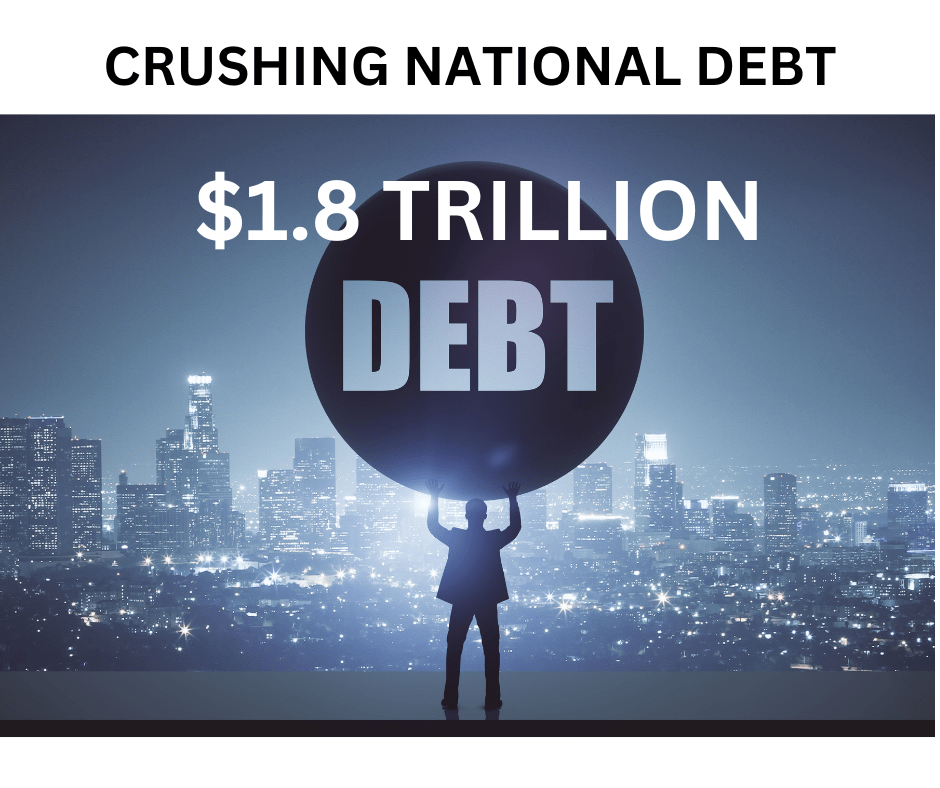 Your Share of the National Debt is ... $105,000The big picture: The U.S. federal deficit for fiscal year 2024 hit a staggering $1.8 trillion, according to the Congressional read more... Deficits & Debt
Your Share of the National Debt is ... $105,000The big picture: The U.S. federal deficit for fiscal year 2024 hit a staggering $1.8 trillion, according to the Congressional read more... Deficits & Debt -
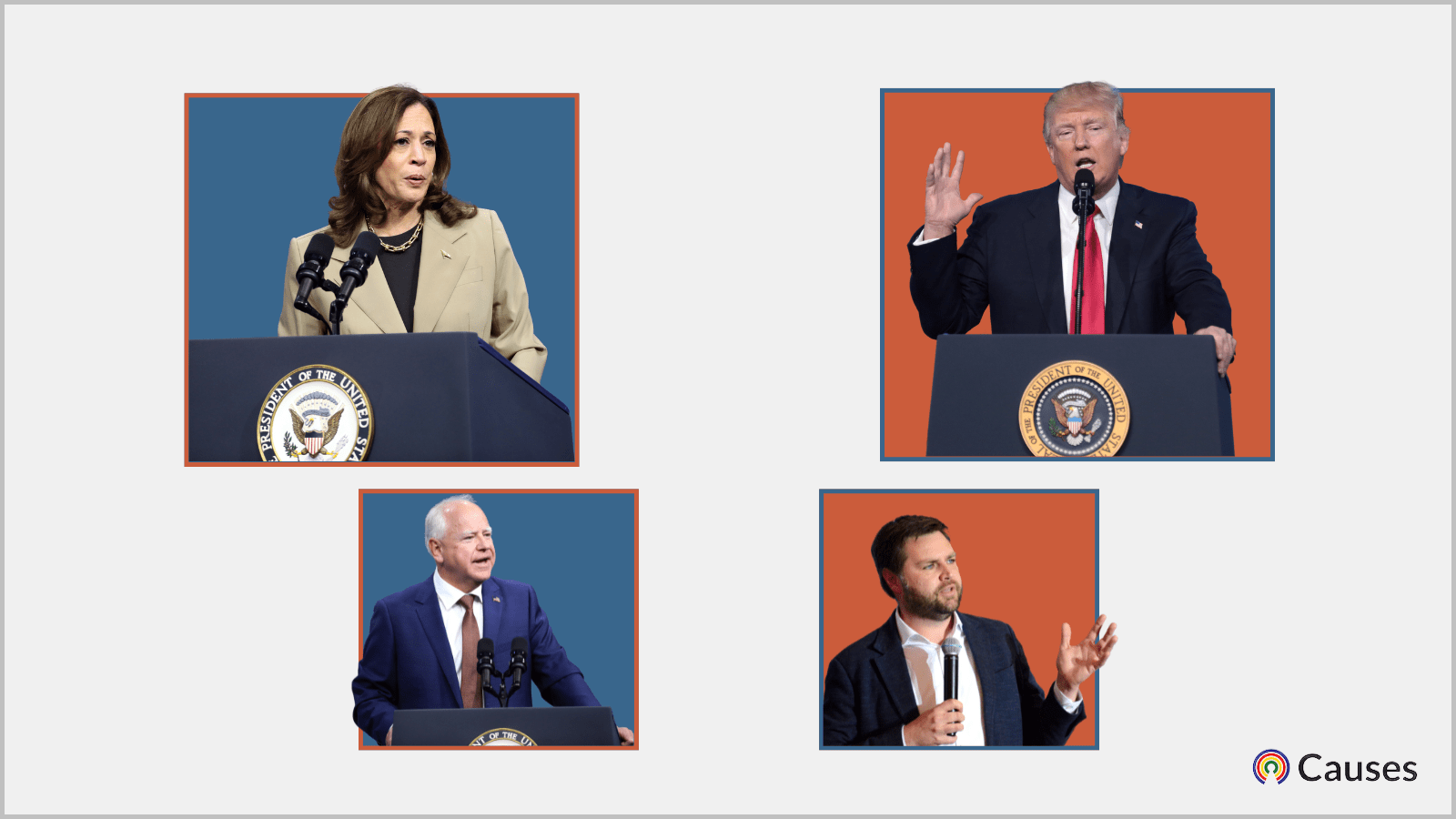 Election News: Second Trump Assassination Attempt, and Poll UpdatesElection Day is 6 weeks away. Here's what's going on in the polls and the presidential candidates' campaigns. September 24 , read more... Congress Shenanigans
Election News: Second Trump Assassination Attempt, and Poll UpdatesElection Day is 6 weeks away. Here's what's going on in the polls and the presidential candidates' campaigns. September 24 , read more... Congress Shenanigans -
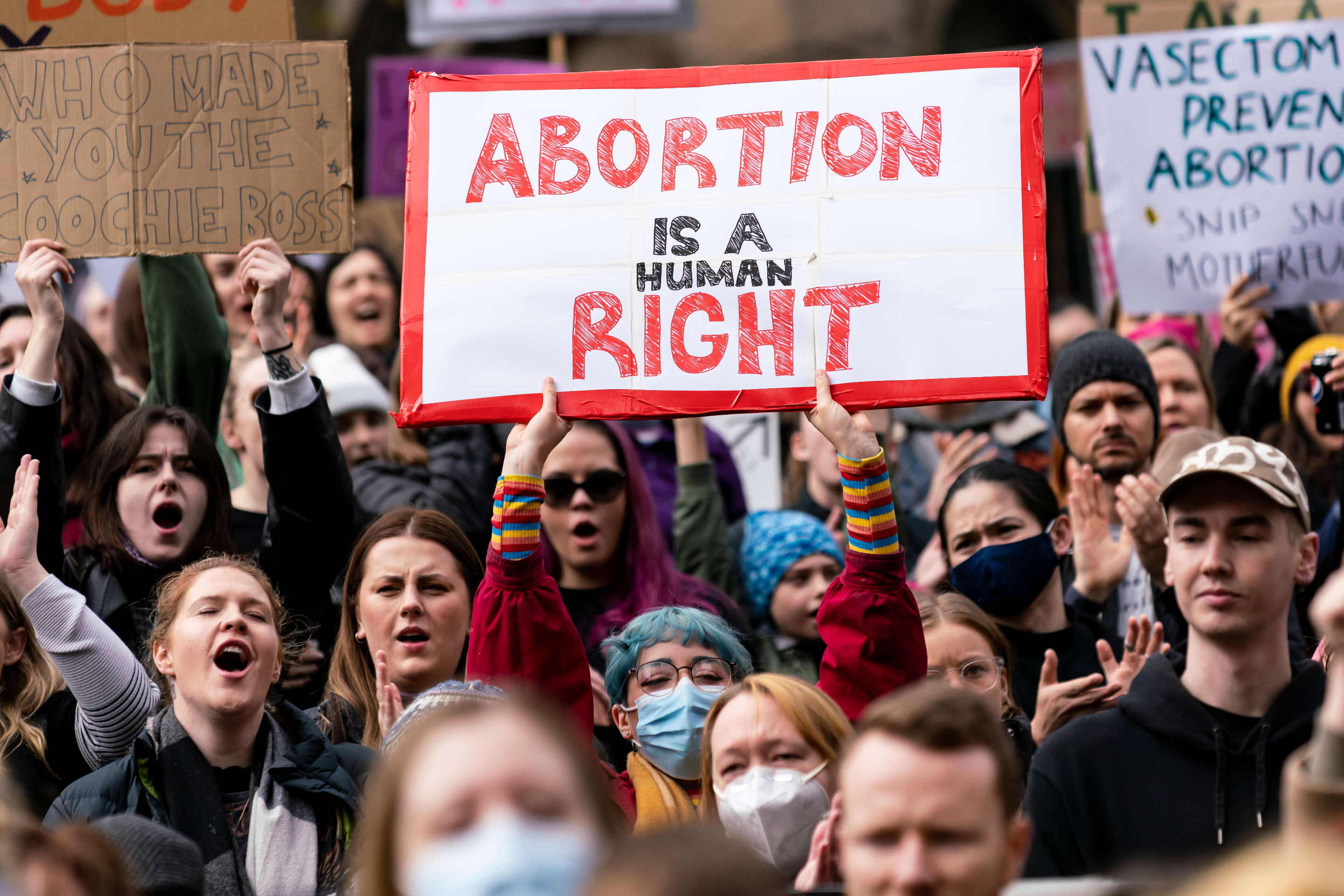 More Women Face Pregnancy-Related Charges After Roe’s Fall, Report FindsWhat’s the story? A report released by Pregnancy Justice, a women's health advocacy group, found that women have been read more... Advocacy
More Women Face Pregnancy-Related Charges After Roe’s Fall, Report FindsWhat’s the story? A report released by Pregnancy Justice, a women's health advocacy group, found that women have been read more... Advocacy -
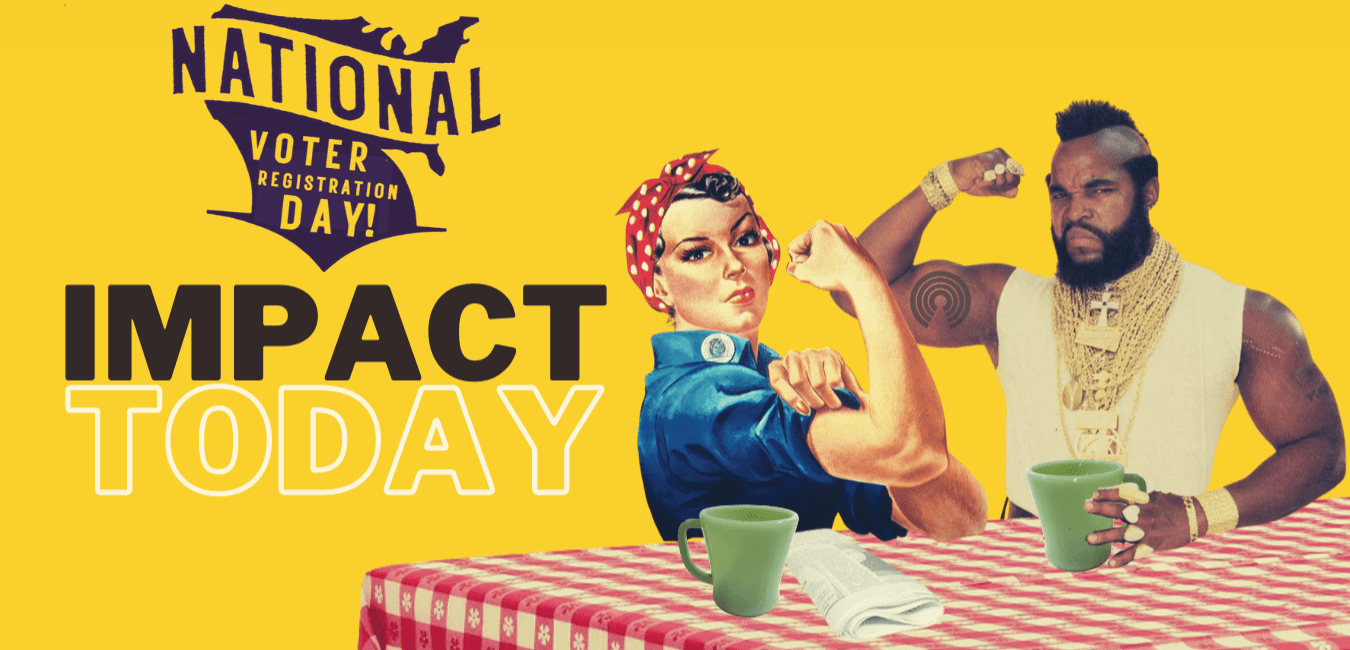 IT: 🗳️ A Guide to National Voter Registration DayWelcome to Tuesday, September 17th, voters... Today is National Voter Registration Day, a day dedicated to encouraging you to read more...
IT: 🗳️ A Guide to National Voter Registration DayWelcome to Tuesday, September 17th, voters... Today is National Voter Registration Day, a day dedicated to encouraging you to read more...
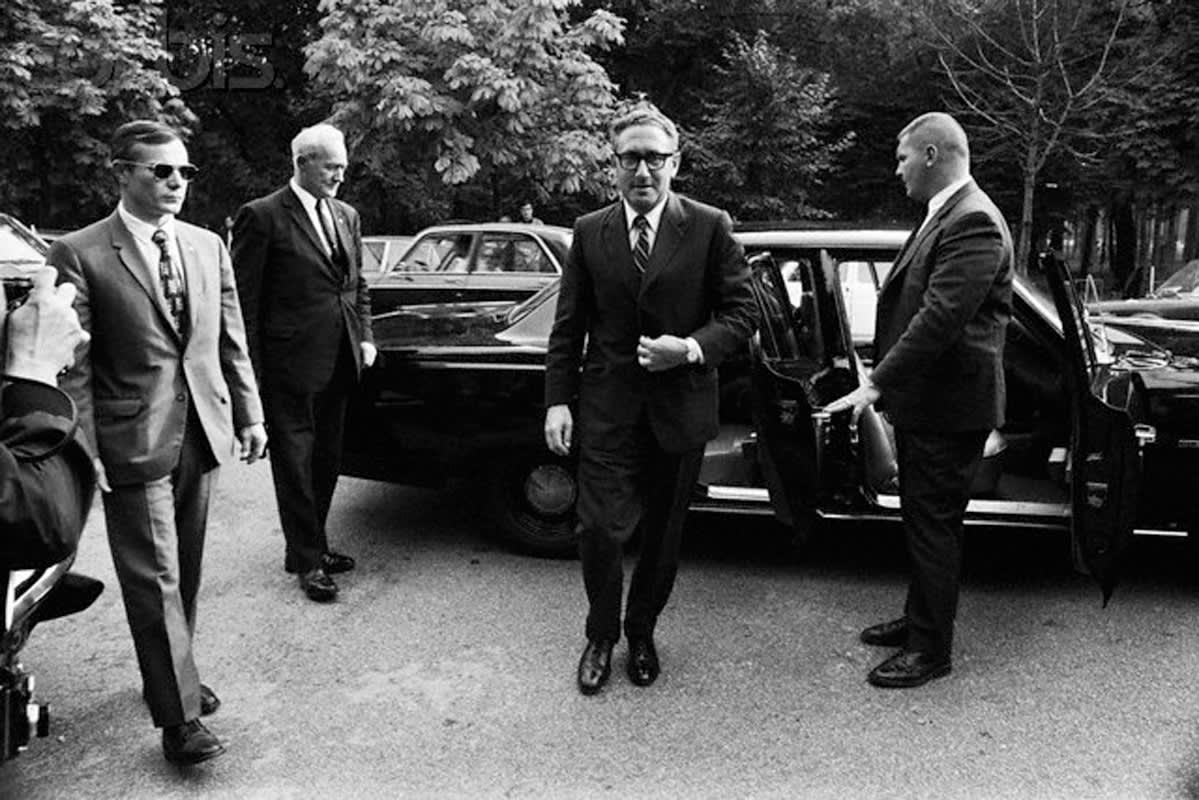
 Climate & Consumption
Climate & Consumption
 Health & Hunger
Health & Hunger
 Politics & Policy
Politics & Policy
 Safety & Security
Safety & Security

I was neutral on Kissinger as much of what he did was rather shadowy, until I read Robert Kaplan’s book, The Arabists, where he details how Kissinger rid the state department of Arabists at Israel’s request which set back U.S. foreign policy in the Middle East by destroying long standing personal relationships necessary to operate in the Middle East. The recent movie on Golda Meir confirms Kissinger was doing Israel’s bidding despite his claims of putting U.S. interests first.
If you get a chance, read Kaplan's book, The Arabists, which is very informative on the region and good background on the current conflict. Kaplan was a foreign correspondent in the region before writing the book, and authored several other books.
"A tight-knit group closely linked by intermarriage as well as class and old school ties, the “Arabists” were men and women who spent much of their lives living and working in the Arab world as diplomats, military attaches, intelligence agents, scholar-adventurers, and teachers."
Kaplan, Robert D.(1993). Arabists: The Romance of an American Elite.
https://g.co/kgs/yVsHWK
https://www.theatlantic.com/past/docs/unbound/kaplan/kapbio.htm
https://www.carnegiecouncil.org/people/robert-d-kaplan
My memories of Kissinger were framed in the Vietnam era, where I thought he was not honorable and brought about tens of thousands of deaths. His relationships with the southern continent did nothing to improve his image.
He was an intelligent, knowledgeable monster!
Well balanced assessment of Kissinger's career from a journalist who attended Kissinger's alma mater so has had access to Kissinger and his colleagues over the years.
"Henry Kissinger, who died this week at 100, may have been the most famous foreign policy practitioner in modern American history. But he practiced foreign policy for just eight of those 100 years. He left office as secretary of state nearly half a century ago. And yet, admired or despised, he managed to hold the world’s attention long after his power waned. What explains this remarkable run? He was that rare breed, a doer and a thinker, someone who shaped the world with ideas and action."
"First, his accomplishments. Kissinger presided over a pivotal moment in the Cold War, when it looked to much of the world like America was losing. The United States was in fact losing a hot war in Vietnam — the first major defeat in its history — on which it had staked its reputation over four administrations. The Soviet Union was on the offensive, building up a massive nuclear arsenal and gaining allies across the world. At home, America was recovering from being convulsed by internal strife after the assassinations of Martin Luther King, Jr. and Robert Kennedy and riots in over a hundred American cities."
"By the end of his eight years in office, things looked different. The Vietnam War was over. The Soviet Union’s forward momentum had been thwarted by a diplomatic coup, the opening of relations between Washington and Beijing. That one stroke moved China, the world’s second-most important Communist power, cleanly out of the Soviet camp."
"Simultaneously, relations with the Soviet Union softened, and negotiations yielded major arms control agreements. In the Middle East, Moscow’s long-standing ally Egypt expelled its Russian advisors, moved into the American orbit and began negotiating with Israel, a process that culminated some years later in the first peace treaty between an Arab country and Israel. Kissinger was the motive force behind each of these four achievements."
"Everything Kissinger did was surrounded by controversy. The right blasted him for the opening to China, which was seen as a betrayal of Taiwan, which until then was the only China that Washington recognized. Conservatives also hated the “detente” with Moscow. And many liberals believed that, with an obsession with credibility, Kissinger dragged out the Vietnam negotiations for far too long, agreeing to a deal in 1973 that was not so different from one that he could have accepted in 1969, which would have spared the lives of tens of thousands of Americans and hundreds of thousands of Vietnamese, Cambodians, and Laotians."
"Kissinger was especially sensitive to this last criticism. I once made it on television, and he angrily called me up reminding me that he began American troop withdrawals as soon and as fast as possible and then sent me a letter detailing what he gained in his negotiations."
"It particularly irked him that the liberal elites who had been enthusiastically in favor of the Vietnam War in 1967 became his most vicious critics within a few years. (His own views on Vietnam were always more skeptical about America’s prospects for victory.) He liked to say that getting out of a war that the United States had committed itself and its honor to for two decades was not as easy as switching off a television set."
"He presided over terrible failures as well. His support for Pakistan, as it tried to brutally crush a rebellion in what became Bangladesh, was an abomination — and a failure. The bombings of Cambodia and Laos caused untold human suffering and distorted the politics of the region for decades. His disregard for human rights in places like Chile and Indonesia left a long shadow over America’s reputation."
"It is striking, however, the degree to which these policies are almost always attributed to him personally. In most other administrations, the president is lauded or lambasted for his administration’s policies. Yet it is odd that in this case, it is the secretary of state who is branded a war criminal, not the man who actually made all the decisions: his boss, the president."
"Kissinger was the first Jewish secretary of state and also the first immigrant to ascend to that office. 13 members of his family died in the Nazi death camps. That background shaped his worldview, though he spoke about it rarely. He grew up in Germany as Hitler came to power and watched perhaps the most advanced and “civilized” nation in the world descend into barbarism and mass murder."
"He developed a lifelong obsession with order. He was too suspicious of democracy and human rights, but it was because he had seen demagogues like Hitler rise to power through elections. He often remarked, sometimes attributing it to Goethe, that between order and justice he would choose the former, because once chaos reigns, there is no possibility for justice."
"I met him first three decades ago and over the years got to know him quite well. We had both been graduate students in the same department at the same university, and many of his colleagues had been my professors. He was a complicated man — warm, witty, proud, thin-skinned, sometimes paranoid but always deeply curious and intellectually serious about the world. He was the only celebrity I ever met who, when the lights dimmed, retreated to his library to read the latest biography of Stalin or reread Spinoza."
"He once famously attributed his success in America to being seen as a lone cowboy pursuing his mission. The image of Kissinger as cowboy might seem odd, but he was right about being a solitary figure on the American strategic landscape."
"In a country of optimists, Henry Kissinger was a European pessimist. He began his career worrying about nuclear weapons and ended it worrying about artificial intelligence. Over the years, in our conversations, he would speculate gloomily that Japan was going to become a nuclear power, that Europe would fall apart, and that Islamic extremism would triumph. In our last lunch, just a few weeks ago, he worried about Israel’s ability to survive in the long run."
"From start to finish, over a century, Henry Kissinger’s abiding fear was that disruptive forces once set in motion could easily rip off the thin veneer of civilization and stability, pushing the world into the abyss — like the one in which he came of age."
https://amp.cnn.com/cnn/2023/12/01/opinions/in-a-country-of-optimists-kissinger-was-a-pessimist-zakaria/index.html
Mr, Kissinger made it to 100 which says something; but I am not sure what.
He supposedly said he had no regrets regarding his decisions. That insincere hubris is a widely used theme of his generation. Someone born in 1923, like Henry Kissinger, was part of the "Greatest" Generation. This cohort includes individuals born from about 1901 to 1927 who grew up during the Great Depression. Henry Kissinger, along with his family, fled Nazi Germany in 1938. They emigrated to the United States as the persecution of Jews intensified prior to the outbreak of World War II. Settling in New York City, Kissinger was 15 years old at the time of their emigration. Kissinger certainly embodied his generation's noted strong work ethic. Kissinger pursued higher education at Harvard University. He received a Bachelor of Arts degree in 1950, graduating summa cum laude. He continued his studies at Harvard and earned both a Master of Arts and a Ph.D. in Government. His doctoral dissertation was titled "Peace, Legitimacy, and the Equilibrium (A Study of the Statesmanship of Castlereagh and Metternich)." Kissinger received his Ph.D. in 1954. His academic focus was on international relations and diplomacy, which paved the way for his future career as a diplomat and statesman.
He put his education to effective use. This is something this generation's "conservatives" who are just full of half baked opinions and bluster should pay attention to.
Mr. Kissinger had his day in the spotlight; his career was more than just soundbites. Among certain groups, he was greatly admired. I believe that admiration was, in part, justified. But let's be real, he did make some really bad decisions.
RIP Henry Kissinger
should have died in prison for war crimes...
He was definitely a brilliant man and a inventive negotiator, but he was also a hawk.
War criminal.
I remember him all too well. His machiavelli actions bothered me. He did start dialogue with China and Russia if my addled memory serves me right. I think (?) he can be credited for continuing communication with the enemies to this day.
I admit I do have mixed feelings about how we should view him based on the culture of that time. Honored or despised - both can be argued for both.
That aside, maybe leaning more to negative side.
The guy was pure evil and directly responsible for millions of deaths- worldwide, along with the destruction of countless democracies and establishment of many right wing dictatorships. May he rot in hell forever!
Henry Kissinger was the first politician in the USA that brought the Anti-Christ to my mind. Now we have Donald J Trump who much more fits the image than H.K.
I wasn't really around when Kissinger was in office(s), but have heard his name and seen interviews. It sounds like he accomplished a great deal which could be seen as good or bad depending on your nationality and worldview.
I wonder how the MAGA crowd and anti-China Americans feels about Republican (and working for Republican presidents) Kissinger's opening up of relations with Communist China, which was directly responsible for all the trading and outsourcing we have with China today.
I don't approve of the ways his actions had repercussions in Cambodia and Chile (and other countries, it seems) that were negative for those countries and their citizens. The US was wrong and should not have interfered there, but that doesn't mean we shouldn't get involved in global politics.
My main takeaway is that actions have consequences, and Kissinger's had many. I hope diplomats and leaders of today can look at his legacy and be more thoughtful and cautious before acting, lest they set us on a path that will still be talked about 50 years later.